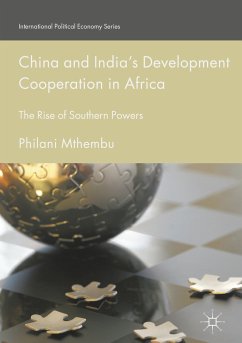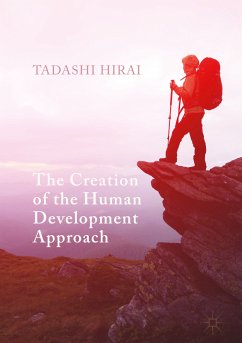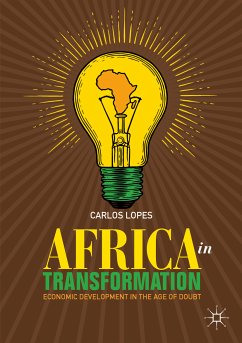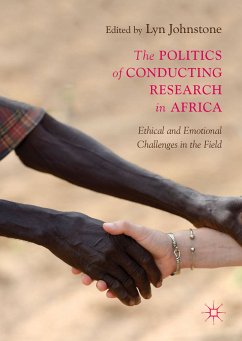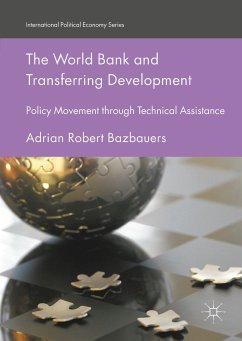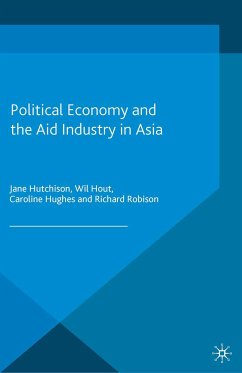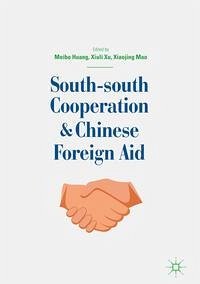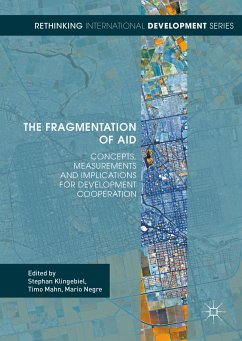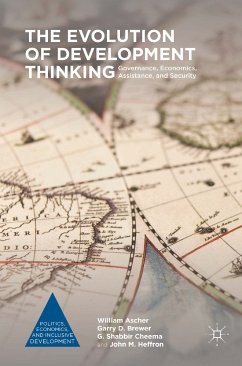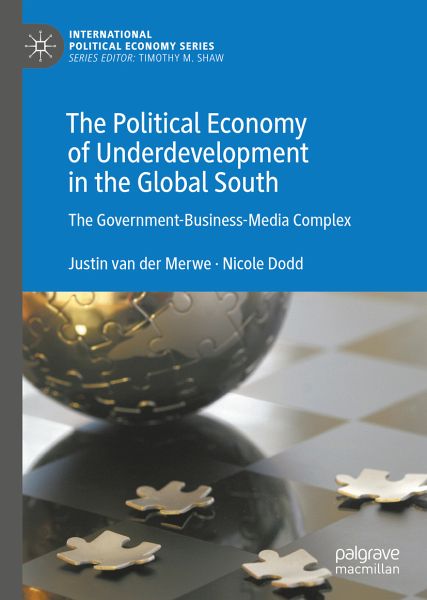
The Political Economy of Underdevelopment in the Global South (eBook, PDF)
The Government-Business-Media Complex

PAYBACK Punkte
30 °P sammeln!
This book presents a new theory explaining underdevelopment in the global South and tests whether financial inputs, the government-business-media (GBM) complex and spatiotemporal influences drive human development. Despite the entrance of emerging powers and new forms of aid, trade and investment, international political-economic practices still support well-established systems of capital accumulation, to the detriment of the global South. Global asymmetrical accumulation is maintained by 'affective' (consent-forming hegemonic practices) and 'infrastructural' (uneven economic exchanges) labour...
This book presents a new theory explaining underdevelopment in the global South and tests whether financial inputs, the government-business-media (GBM) complex and spatiotemporal influences drive human development. Despite the entrance of emerging powers and new forms of aid, trade and investment, international political-economic practices still support well-established systems of capital accumulation, to the detriment of the global South. Global asymmetrical accumulation is maintained by 'affective' (consent-forming hegemonic practices) and 'infrastructural' (uneven economic exchanges) labours and by power networks. The message for developing countries is that 'robust' GBMs can facilitate human development and development is constrained by spatiotemporal limitations. This work theorizes that aid and foreign direct investment should be viewed with caution and that in the global South these investments should not automatically be assumed to be drivers of development.
Dieser Download kann aus rechtlichen Gründen nur mit Rechnungsadresse in A, B, BG, CY, CZ, D, DK, EW, E, FIN, F, GR, HR, H, IRL, I, LT, L, LR, M, NL, PL, P, R, S, SLO, SK ausgeliefert werden.
Alle Preise in Euro und inkl. der gesetzl. MwSt. | Innerhalb Deutschlands liefern wir preisgebundene Bücher versandkostenfrei. Weitere Informationen: bitte hier klicken
Support
Bitte wähle dein Anliegen aus:
Rechnungen
Bestellstatus
Retourenschein
Storno



